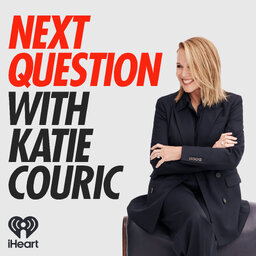Quinta Brunson on ‘Abbott Elementary’s’ realness, her interview with Oprah, and why she can’t slow down
Quinta Brunson is having an incredible year. She and her ABC sitcom, Abbott Elementary, are racking up some serious awards and breaking ratings records. She single-handedly revived the dying network sitcom. The Hollywood Reporter named her Comedy Star of the Year. And she just played Oprah in ‘Weird: The Al Yankovic Story,’ which came out the same month Quinta was interviewed by Oprah herself. How does Quinta deal with it all? On this episode of Next Question with Katie Couric, Katie and Quinta talk about the blur of success, the making of ‘Abbott,’ the real-life inspiration of her characters, her early years in Philly, why she loved her twenties, and so much more.
 Next Question with Katie Couric
Next Question with Katie Couric


